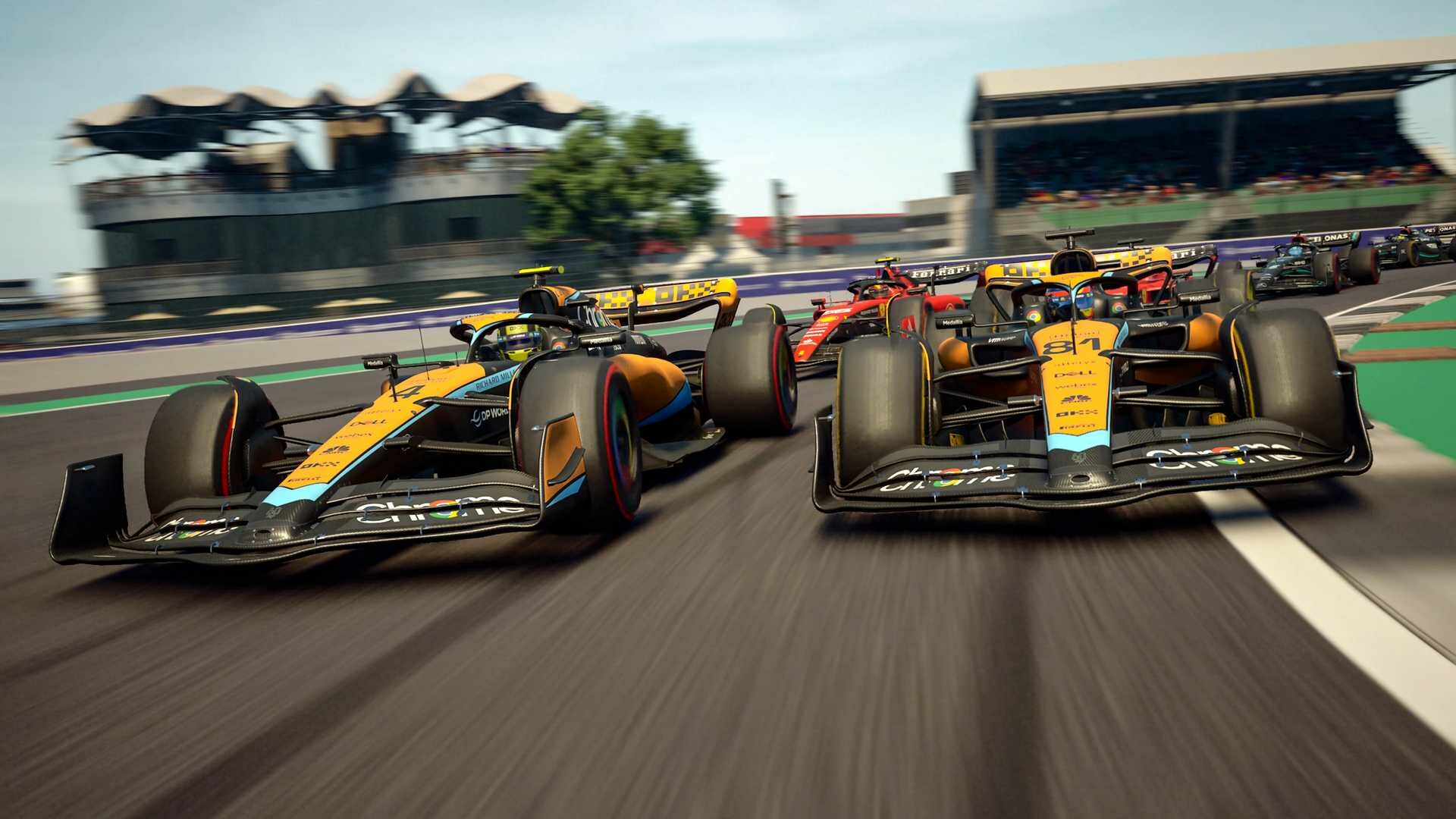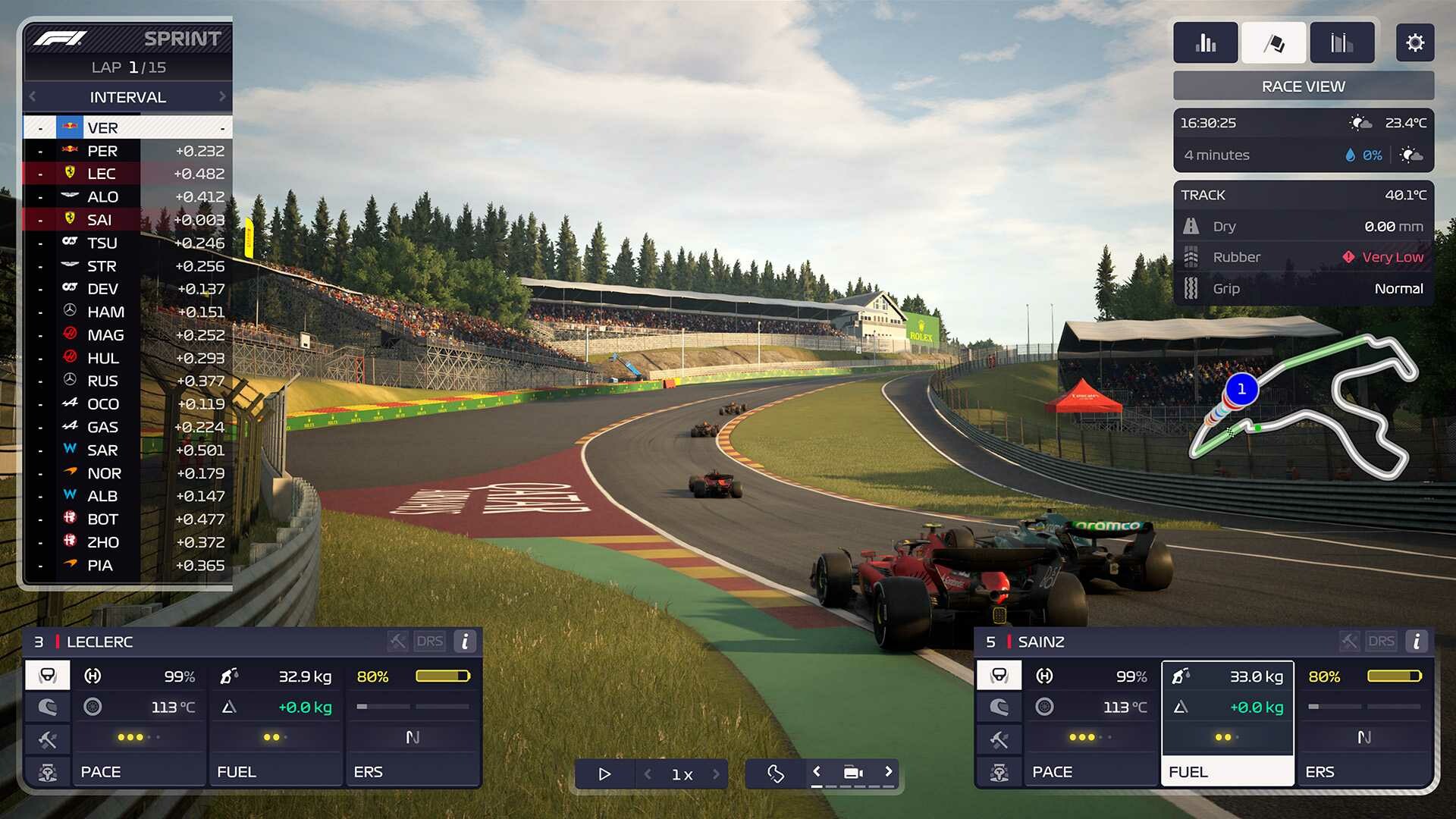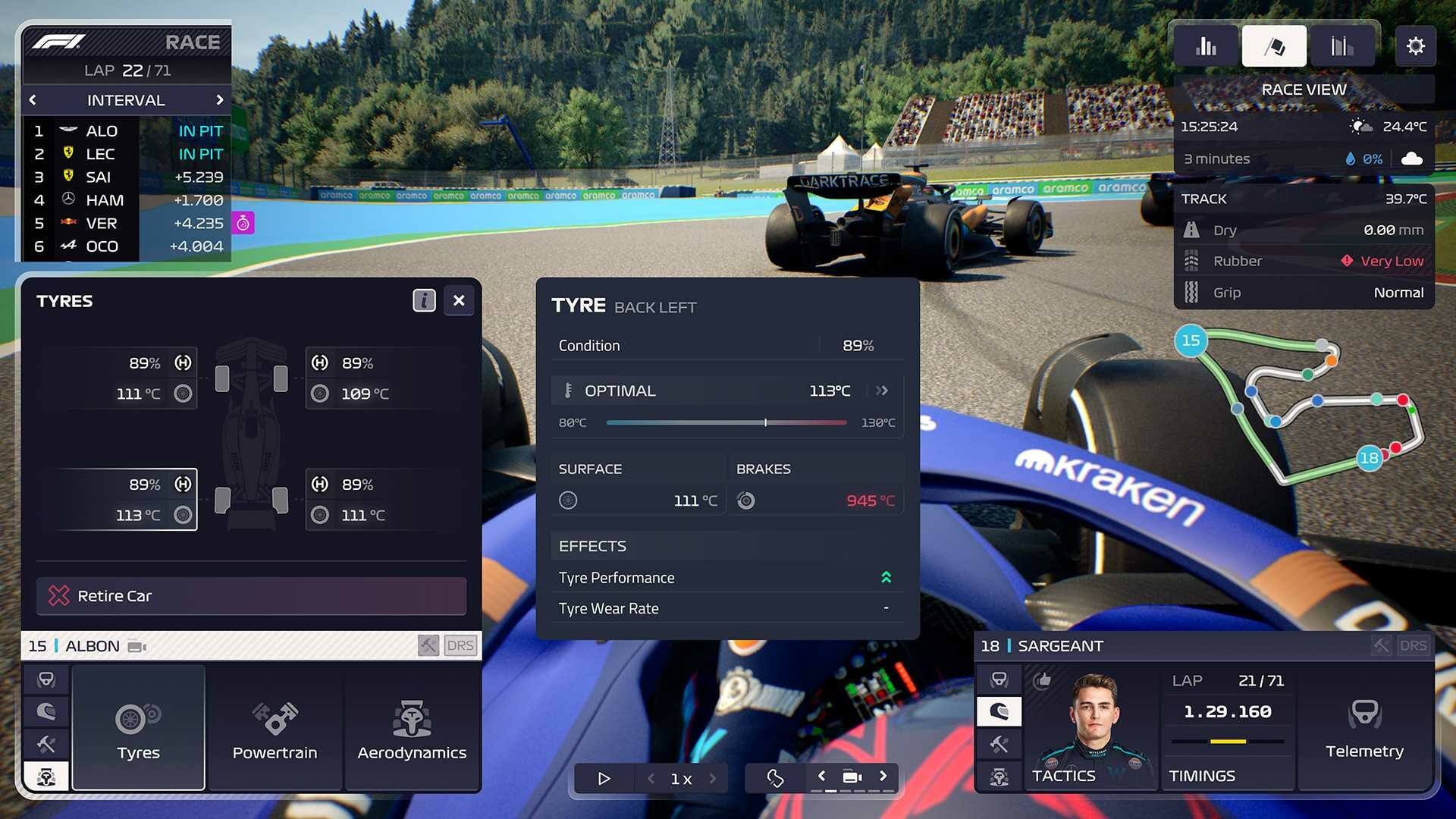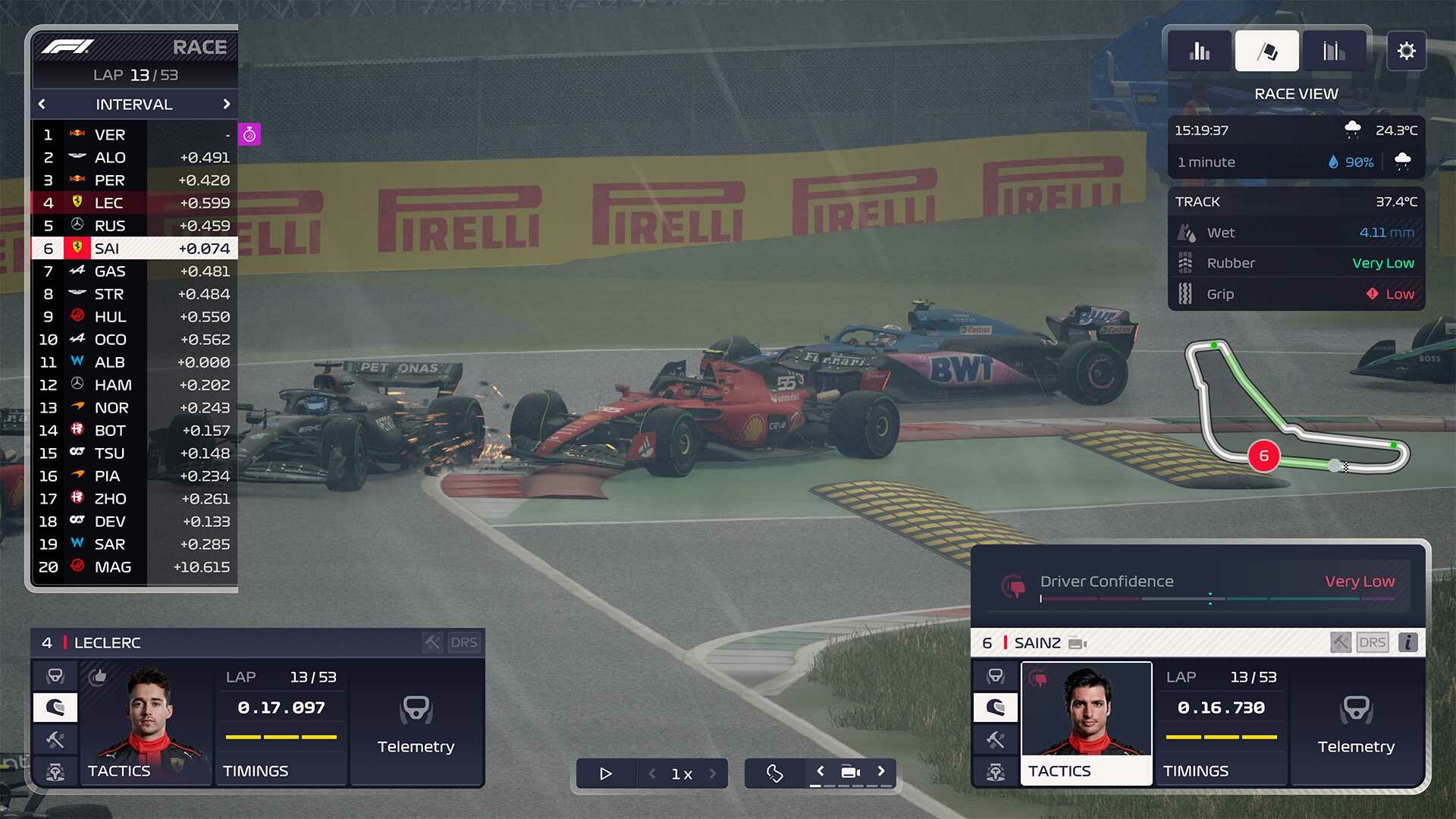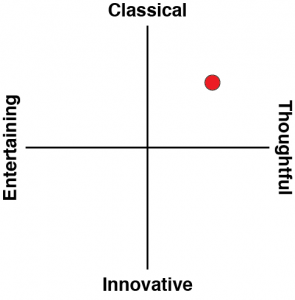One of the great things about Football Manager is that you don’t need to be an incredibly hardcore fan of the sport to enjoy managing your team. You’ll want to know the basic rules of football, of course, but beyond that you’re given a sandbox to try things, fail, learn and try again, and that process, of learning how to manage a team, is the fundamental point of the game.
But then football is a very human sport, and it is a relatively straightforward matter to learn the respective statistics of each player, compare them to one another, and then build tactics around the players you have on you team. F1 Manager is a little different because the sport itself is so different. While the racing talents of the players is undeniably important, success has everything to do with the engines and crews that support the athletes. This stuff is complex and highly technical. Consequently, I don’t think F1 Manager 2023 will find quite the same broad appeal that Football Manager does.
Perhaps it doesn’t need that kind of audience. By being a game by F1 racing fans for F1 racing fans, F1 Manager is free to indulge every small retail and minute detail, and it does feel so like you’ve achieved something due to your management skills when you do outperform your team’s expectations for the year. It’s just hard not to look at the game and wish it offered a better pathway for casual fan to superfan, as Football Manager does.
What is also disappointing is how little F1 Manager has beyond the F1 itself. Over in Football Manager, the Premier League (or your chosen nation’s top-level equivalent) might be the most popular destination – who could resist the appeal of managing Crystal Palace, after all – but there is such a sense of satisfaction with taking a team from the fifth rung of the sport (the Vanarama competitions) and seeing how high you can lift them.
I would have liked to see something similar with F1 Manager – perhaps the ability to pick an athlete and hitch your management career to them (so as they move through the F3 and F2 ranks, so do you). That continuity of a career would have given you something a little grander to focus on than the objectives of most of the teams in F1. See, because very few teams have even a hope of beating Red Bull and Ferrari to actually win the competition at the moment, you’re mostly just gunning to meet your season’s expectations instead (achieve the top half, etc). That’s challenging enough, and realistic to the sport, but it’s also a generally unexciting achievement that isn’t going to shift much from one competition to the next.
Mind you, you’ll probably find yourself so deeply invested in the day-to-day management of the team that the longer-term objectives seem a distant concern. F1 is never about just the main race day. It’s about performance through practice days and qualifying. It’s about carefully managing your player’s performance and morale over long days of driving, and it’s about carefully managing the resources that you have access to over the full course of any given event. Waste too much time and resources in practice and you’ll have too little for the actual race. Don’t spend enough time on the track and your racers will be unprepared and underperform.
Before a race starts, you’ll need to tweak the car’s configurations for the track – and this is one area where the granular detail in F1 Manager is going to be too much for any but the avid fans of the sport. You can spend hours just contemplating and managing the vehicles’ tyres, for example, and the science that goes into those things is almost a degree of study in itself. I’m a decent fan of the sport, but areas like that are a step too far even for me. Once on the track, you’ll need to monitor performance in real-time and issue any number of strategic and tactical instructions to get the best performance out of your racers. You might not be racing the vehicles themselves (though you can shift the camera perspective to the vehicle to get a “eye-level” feel for how it’s driving), but you’re going to be every bit as drained from the intensity of focus that you need to follow the races.
For the most part, you will feel like your decisions have a realistic impact on the race. You’ll get the most out of your drivers if you instruct them well, essentially, though you’re still not going to be able to overcome Red Bull or Ferrari when managing one of the minnows. With that being said, racers do tend to get involved in accidents a little too frequently, even when you are managing them well (or, at least, I thought I was). Those little moments where the AI seems to make arbitrary decisions do let the experience down, though not enough to make you decide that there’s no point putting the effort in.
F1 2023’s presentation is impressive. Certainly, moreso than Football Manager. The tracks are rendered really nicely, so you can enjoy the racing on gameday itself, and off-track, there’s a streamlined and elegant menu system that makes accessing and interpreting the reams of data that you have access to so easy. This, thankfully, is not a “spreadsheet simulator”. Indeed, it’s the most visually impressive sports management simulator I can recall having played.
At the end of the day, I consider the value of these sports management simulators to be an opportunity to teach the nuances of the sport to laypeople. By understanding the underlying tactics and management structure that goes into those on-field or on-track performances, you do come to a much deeper understanding of the sport itself. Football Manager understands this, but F1 Manager doesn’t quite. Not yet. The presentation of the information is accessible and even elegant, but this is an enormously complex sport, and the developers haven’t found a way to translate this so it’s palatable to people who aren’t already deeply invested in the sport. As enjoyable, comprehensive, and well-designed as F1 Manager is, there’s still work to go to get it to the standards of Football Manager in supporting people to develop a passion for the sport.
